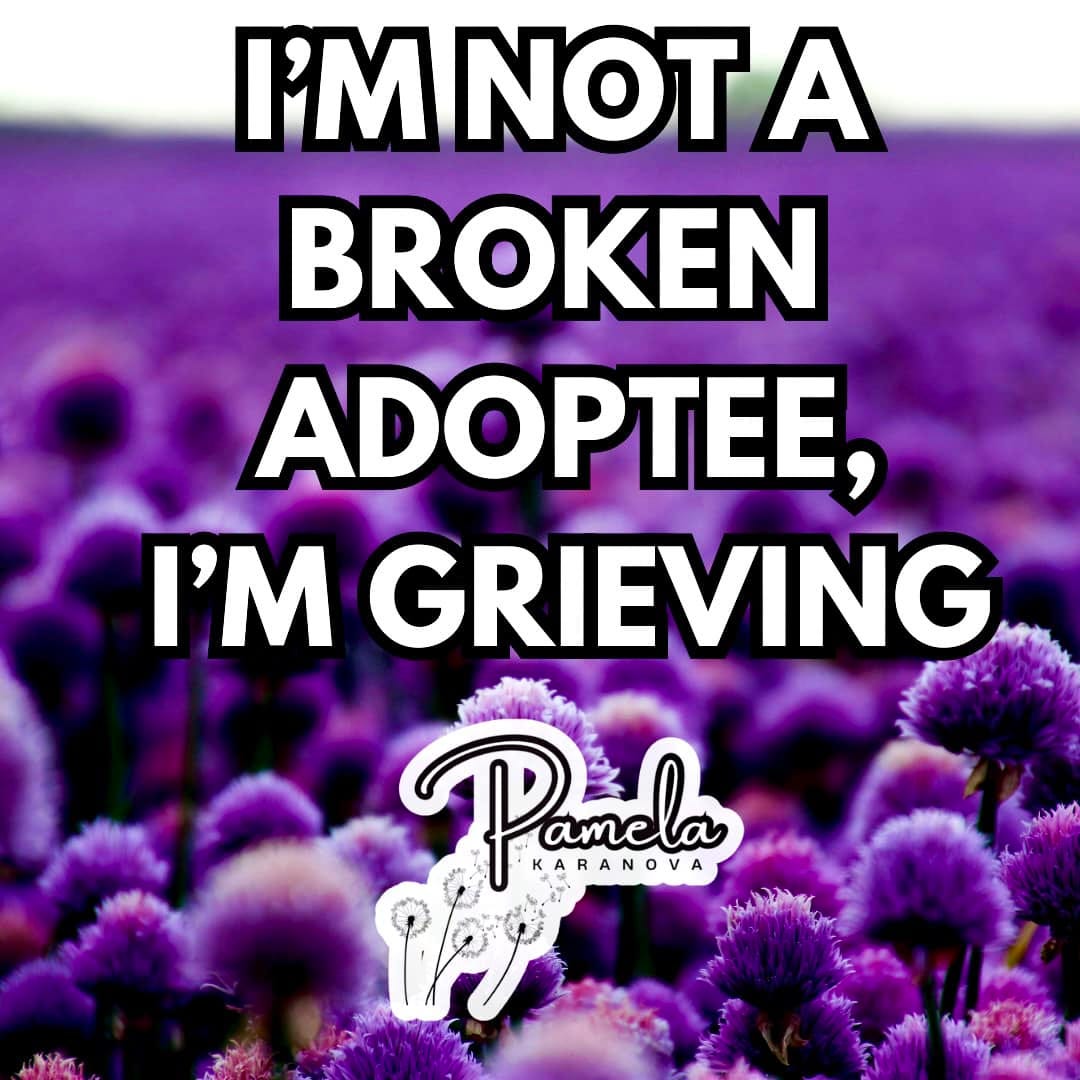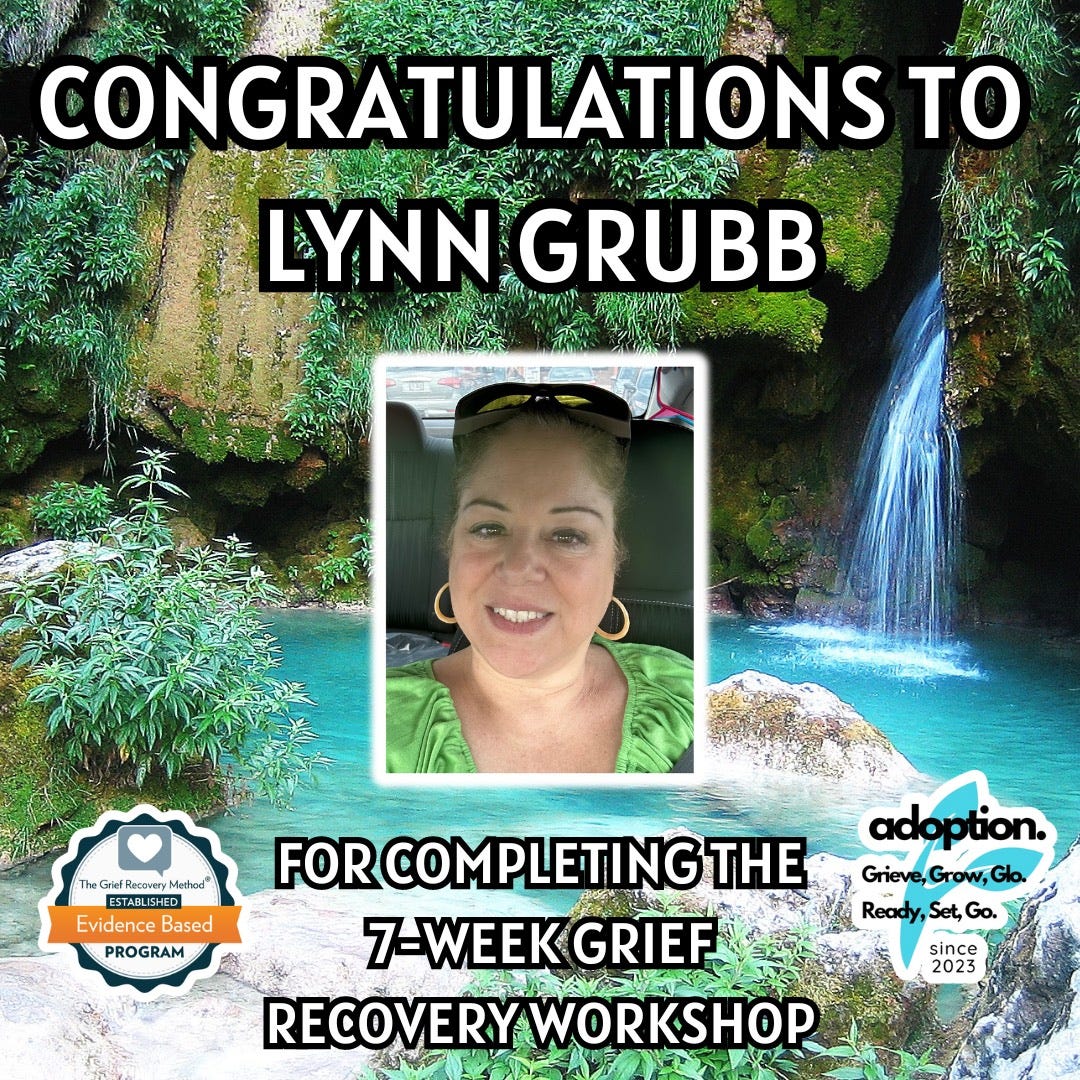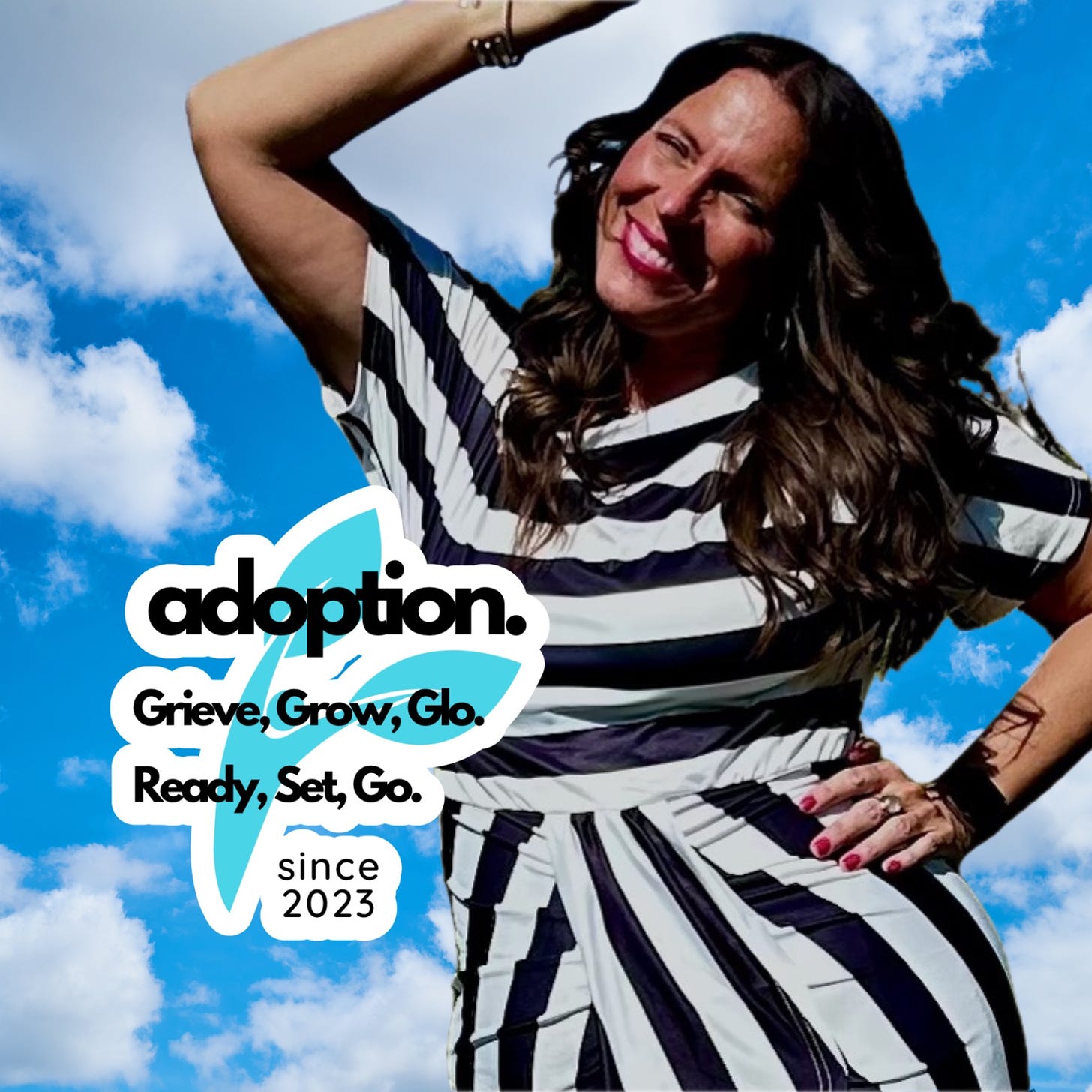The Essential Role of The Grief Recovery Method in the Adoption Constellation
Through this movement, I hope to offer a path to healing and self-discovery for all who have been impacted and significantly harmed by adoption.

“There comes a point where we need to stop just pulling people out of the river. We need to go upstream and find out why they’re falling in.” – Desmond Tutu
Adoption is a complex journey filled with profound emotions and experiences for everyone involved—adoptees, birth parents, and adoptive parents. While the joy and fulfillment some see in adoption can bring are undeniable, it is equally important to acknowledge the inherent grief and loss that accompany this life-changing event. The Grief Recovery Method® (GRM) stands as a vital tool for navigating these emotions, offering a structured and compassionate approach to healing.
Understanding Grief in Adoption
Grief is the natural and normal reaction to loss of any kind. According to The Grief Recovery Method, there are over 40 types of losses that can cause grief, including death, divorce, loss of health, and, significantly, adoption-related losses.
Adoption: Grieve, Grow, Glo was born from the profound realization that I had been grieving since the moment I was born. This revelation was the key that unlocked my journey towards healing and processing the lifelong grief from my adoption experience. I was determined to reclaim everything adoption had stolen from me, with my internal happiness and peace of mind topping the list. I want to help others achieve this, which is why I became a Certified Grief Recovery Method Specialist® via The Grief Recovery Institute®.
In this journey, I recognized that no one is going to save us—we have to save ourselves. We must take responsibility for our own healing and happiness, trading in our victim card for active healing and wholeness. By learning to heal myself, love myself, and acknowledge my wounds, I could take control of my own life and explore every healing tool available until I finally had an entire toolbox of tools that worked for me. This process will look different for everyone, but thankfully, we have tools available. When we work on our internal wounds and go inward, we start to show up more authentically for ourselves and those we love.
As we learn to love ourselves and get to know the essence of who we truly are, we can push that love into the world. The connection to grief has been my most significant revelation, resonating deeply for countless reasons. Transformation is possible, but we hold the keys to putting action behind our own healing. My mission is to bring the Adoption: Grieve, Grow, Glo grief recovery workshops to everyone in the adoption constellation, with a steadfast commitment to prioritizing adoptees. Through this movement, I hope to offer a path to healing and self-discovery for all who have been impacted and significantly harmed by adoption.
For adoptees, the loss of birth parents, heritage, and identity can be profoundly impactful. Birth parents experience the loss of their child and, often, a part of themselves. Adoptive parents might grieve infertility or unmet expectations of parenthood.
Unprocessed grief can have severe long-term effects. Studies show that unresolved grief can lead to a myriad of psychological and physical health issues, including depression, anxiety, and chronic stress. For adoptees, the effects of unaddressed grief can manifest in identity struggles, attachment issues, and behavioral problems.
The Losses in the Adoption Experience
The adoption experience involves multiple layers of loss for all parties involved.
Adoptees often face the loss of their biological family, which includes not just parents but also siblings, grandparents, and the extended family network. This separation can lead to a deep sense of abandonment and identity confusion as they struggle to understand their origins and place in the world. They also experience a loss of cultural heritage and genetic mirroring, which can complicate their sense of self.
Birth parents endure the profound loss of their child, which can leave a lasting void and lead to feelings of guilt, shame, and regret. They might also experience societal judgment and internal conflict, further complicating their grief. For many, the decision to place a child for adoption is made under challenging circumstances, adding layers of trauma to their loss.
Adoptive parents, on the other hand, often grapple with the loss of their dream of having biological children, which can include struggles with infertility, miscarriages, or medical issues. This loss can be accompanied by feelings of inadequacy, failure, and a deep longing for a biological connection that adoption cannot fulfill. Even as they embrace their adoptive children with love, they may face societal misconceptions and the challenge of supporting their children through their unique grief journeys.
The Critical Role of Adoptive Parents
As a certified Grief Recovery Method Specialist, I strongly recommend that all adoptive parents become grief experts. This begins with a commitment to work on their own grief. By understanding and addressing their losses, adoptive parents become better equipped to support their adoptive children through their grief.
It is critical to the adoptee experience that adoptive parents are prepared to assist their children in processing their losses. The sooner we start to grieve, the better the emotional and psychological health outcomes. When adoptive parents model healthy grief practices, they create a safe space for their children to express and work through their own emotions.
The Benefits of The Grief Recovery Method offers practical tools and strategies that are beneficial for all areas of life, not just adoption-related grief. Our lives are constantly infiltrated with grief and loss, making these skills universally applicable. GRM workshops provide a structured environment where individuals can learn to acknowledge and process their grief, leading to a more emotionally healthy and fulfilling life.
Participants in GRM workshops gain a deeper understanding of what grief is and learn how to work towards completing their relationship to the pain caused by loss.
This process involves:
1. Acknowledgment: Recognizing the grief and the specific losses that have occurred.
2. Expression: Safely expressing the feelings associated with those losses.
3. Working Towards Completion: Taking specific GRM steps to work towards completing the unfinished emotional business left by the loss. Ultimately, we take control of our own healing.
An Invitation to Heal:
I invite everyone within the adoption constellation—adoptees, birth parents, and adoptive parents—to consider signing up for a One-On-One Grief Recovery Method workshop, which will add you to the waiting list. These workshops provide a safe, supportive space to process grief. They are led by Pamela A. Karanova, a trained specialists who understand the unique challenges those affected by adoption face.
Participating in a GRM workshop will teach you invaluable tools to address grief and loss, leading to a healthier emotional state and improved relationships. Remember, grief is not something to be ignored or pushed aside. It is a journey that can lead to profound healing and growth when undertaken with support and compassion.
Grief is a universal experience, but with the right tools and support, it does not have to be a lifelong burden.
Start your journey to healing today.
For more information on upcoming workshops and how to register, please visit www.pamelakaranova.com.
Q & A
Dear Readers, what are some specific ways you’ve found helpful in processing the grief and loss that can come with adoption? Whether you’re an adoptee, adoptive parent, or biological parent, how have these experiences shaped your understanding of and approach to adoption? We’d love to hear your stories, insights, and any resources or strategies that have made a difference for you. Please share your thoughts and comments below!
Congratulations, Lynn Grubb!
We are thrilled to celebrate your completion of the 7-week one-on-one grief recovery program through Adoption: Grieve, Grow, Glo! Your dedication and commitment to diving deep within to address the roots of your heartache, grief, and loss are truly inspiring. Lynn, you've bravely journeyed upstream, exploring the depths of your emotions, and tackled the source of your grief head-on. Your courage and determination to heal and embrace a happier life are nothing short of amazing.
Here's to new beginnings and brighter days ahead with some new tools to navigate the grief and loss life brings your way. With heartfelt congratulations and admiration, Pamela A. Karanova | Adoption: Grieve, Grow, Glo
I see you; I feel your pain for all the adoptees who feel forgotten, lost, and alone. Please don’t give up, and know you aren’t alone in feeling like you do.
I have compiled a list of recommended resources for adoptees and advocates. It can be found here: Recommended Resources for Adult Adoptees and Adoption Advocates.
Thank you for reading and for supporting me and my work.
Understanding is Love,
Pamela A. Karanova
Here are a few articles that highlight the intersection of adoption, grief and loss I recommend reading:
Still, Grieving Adoptee Losses, What My Adoptive Parents Could Have Done Differently.
Acknowledging Immeasurable Adoptee Grief, The Real Mother.
When Adoptees Know Loss Before We Know Love.
Bewildering Adoptee Grief on Infinite Repeat.
30 Things To Consider Before Adopting From An Adult Adoptee Perspective.
Adoptee Holiday Grief, The Gift That Keeps On Giving.
Adoption Hasn’t Touched Me. It’s Ruthlessly Kicked My Ass.
Adoption: Mislabeled, Medicated, & Diagnosed Adoptees Could Be Grieving Profoundly.
Adoption: Deconstructing Harmful Myths We've Learned About Adoptee Grief.
Grief From Adoption? Most People Think Of Death and Dying When They Think of Grief.






